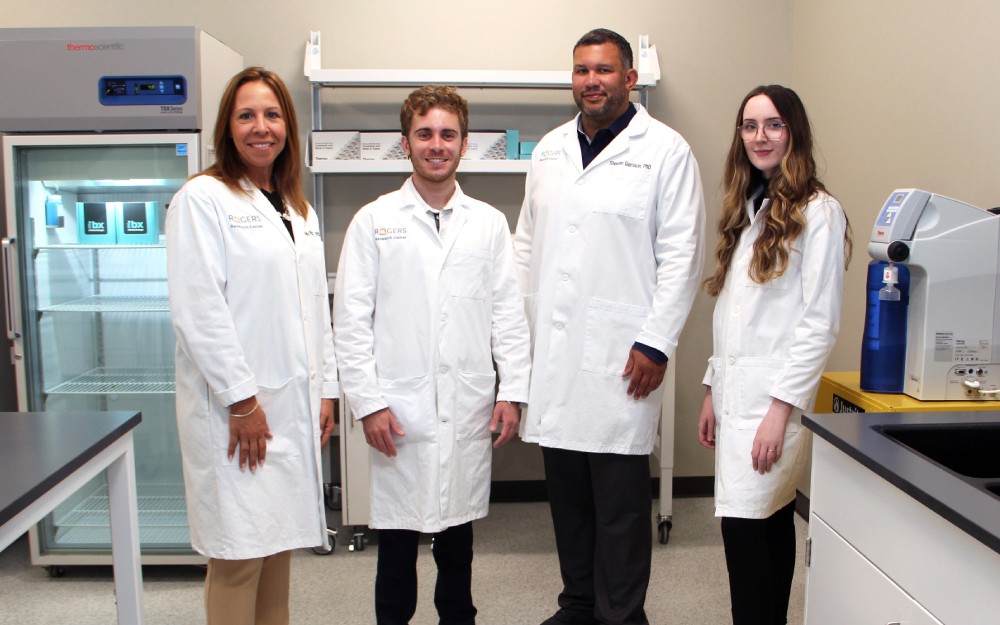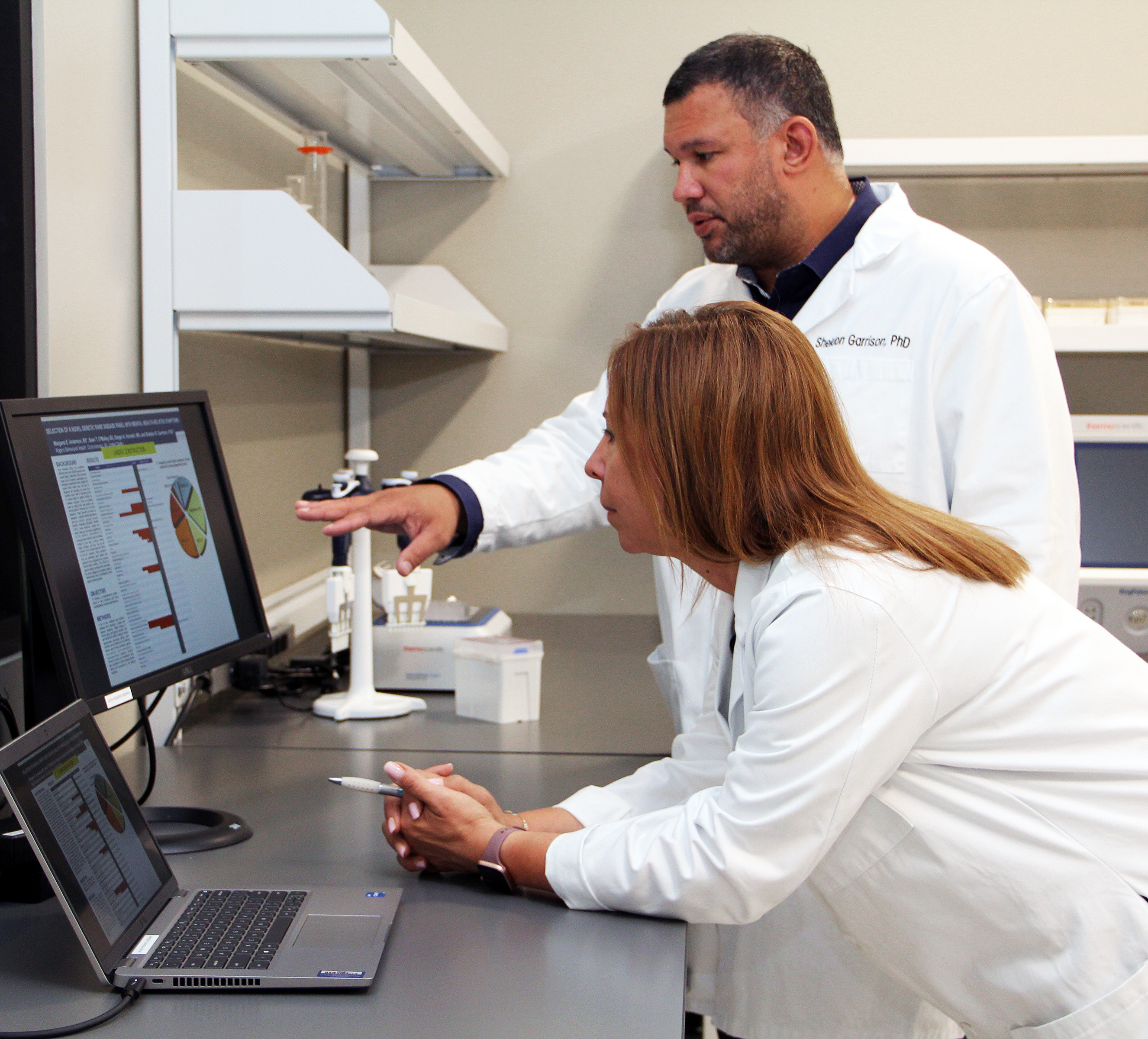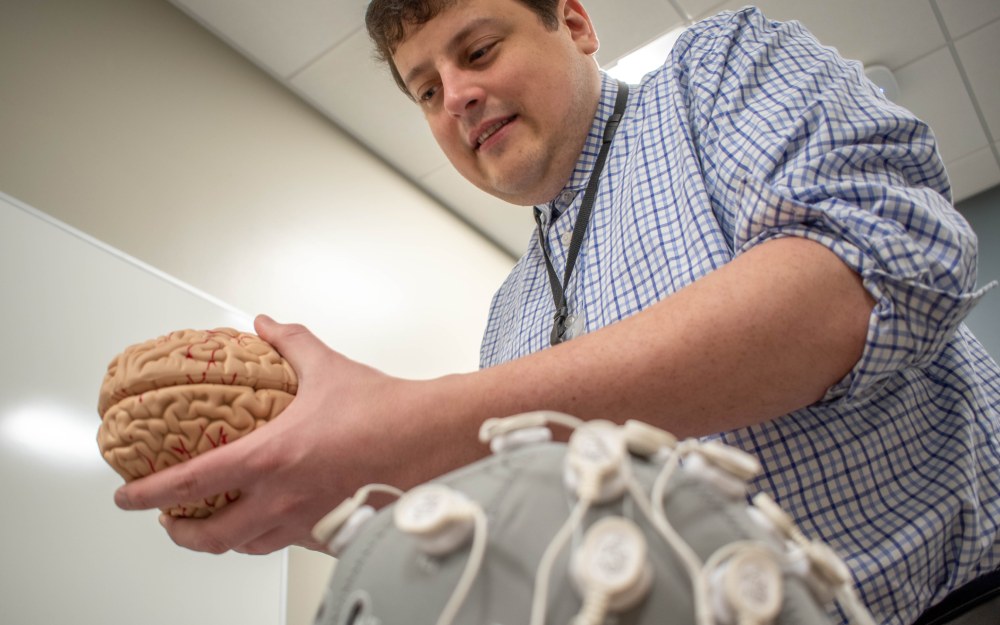
Rogers Research Center studies genetics behind OCD
10/12/22 12:47:pmFollowing the launch of the biobank this summer, Rogers Research Center is working to better understand the connection between genetics and OCD in two new studies with internationally renowned academic partners.

Identifying multiple OCD risks with University of California, San Francisco
The Research Center and University of California, San Francisco (UCSF) are collaborating on a three-year study to identify OCD risk genes that could provide insight into the development of new treatments.
“While it’s compelling to understand the origin of OCD, we also have tremendous opportunity to learn about underlying genetic and physiological factors that might give us better knowledge about our patients’ overall mental and physical health and how we can optimize treatment at an individualized level,” says Brad Riemann, PhD, president of philanthropy, research, and clinical care.
Additionally, the study will allow researchers to pursue important scientific questions regarding the genetic overlap with co-occurring conditions, such as hair pulling, skin picking, autism, or ADHD, among many others.
The Research Center is currently welcoming adult and adolescent OCD patients from Oconomowoc to participate in the study. Clinicians who are interested in referring patients for the study may email biobank@rogersbh.org.
Participants will provide a blood sample to the biobank, and collaborators at UCSF and Rutgers University, which are internationally renowned for their genetics work, will conduct a genome wide association study to identify risk factor genes. Dr. Riemann will serve as principal investigator and lead Rogers’ intellectual contributions to upcoming study manuscripts.
Beyond this particular study, the de-identified genetics data may also be used for additional Rogers research studies, according to Sheldon Garrison, PhD, the research scientist who leads the Research Center’s genetics program. The data will also be available to the National Institute of Mental Health (NIMH) for other researchers to leverage.
“The data has the potential to impact many different studies, and lead to new treatments and detection methods for OCD and other behavioral health conditions,” Dr. Garrison explains.
Biobank makes possible more upcoming initiatives
Rogers has also joined Baylor College of Medicine and a large international team of OCD clinicians and researchers on the Latin American Trans-Ancestry Initiative for OCD Genomics.
An estimated 5,000 individuals of Latin American, Hispanic, and Brazilian descent ages 7 to 89 will be recruited from Rogers and other participating sites. Eligible participants will provide a saliva sample, from which DNA will be extracted and the individual’s genetic code extensively analyzed to identify OCD risk genes.

Additionally, Rogers Research Center is developing a novel pharmacogenomic panel. Pharmacogenomics is a relatively new field in behavioral health research combining pharmacology and genetics to determine the most effective and safe medications and doses tailored to a person’s biology and metabolism.
The goal of utilizing this panel is to help predict patient response to medications and alert providers to genetic conditions that initially present with serious neuropsychiatric features that may mimic the typical presentation of depression, anxiety, ADHD, and other behavioral health conditions.
“The Rogers Biobank is uniquely suited to understand the role of these genetic conditions in our patient setting and can carry out such research in the lab by utilizing the DNA generously donated by patients,” says Kelly Piacsek, PhD, vice president, Research.
“Collectively, these research and development efforts will allow us to effectively progress toward providing effective evidence-based therapies for patients and families affected by mental health conditions and addiction,” says Dr. Piacsek.





